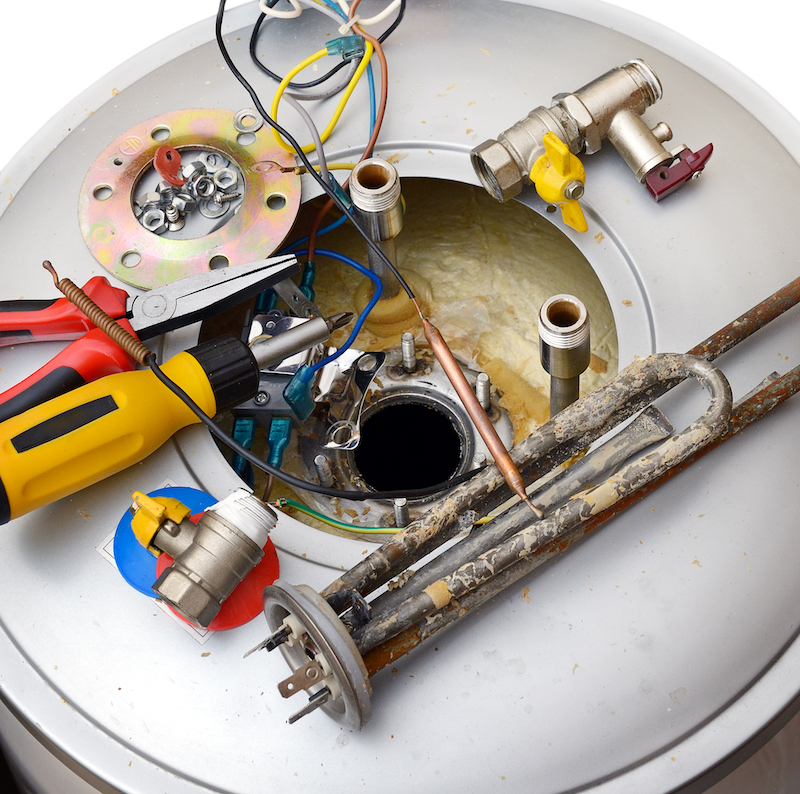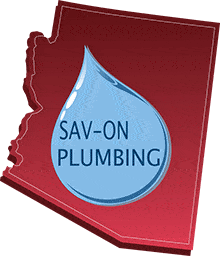
Why do water heaters fail at a higher rate in winter than during the rest of the year? There is no one reason for this, rather a combination of factors are at work.
The fact that water heaters have to work harder to make hot water in colder temperatures is certainly a contributing factor. However, the main reason water heaters fail is a lack of maintenance. Water heater manufacturers recommend that homeowners or landlords flush water heaters a minimum of annually. In areas of hard water, semi-annually is even better. Scale builds up in water heaters, and if they are not flushed regularly, the unit must work harder to make hot water.
Included in any water heater maintenance program that we include with a water heater replacement is an annual inspection of the anode rod, replacing it if necessary. At Sav-On Plumbing we recommend inspecting the anode rod at least every three years.
The second most frequent reason for water heater failure is excessive water pressure. While your home may have 60 pounds of pressure entering the house, the water heater is subjected to considerably more pressure due to thermal expansion. Water expands as it is heated. This expansion places addition pressure on the unit as the water heats up. This expansion, and the contraction as cold water enters the heater, subject the heater to considerable additional stress. This expansion and contraction over time is a serious issue, as is scale buildup on the heating elements. When the elements are impacted by scale, they must work harder to make the same amount of hot water.
What can homeowners do to remedy these issues and extend the life of their water heaters? First, maintain the unit on a regular basis. This means flushing the water heater at least annually and inspecting and replacing the anode rod at least every three years if needed. Second, install a pressure regulating valve on the incoming water line. This will keep the water heater from being subjected to “pressure spikes” in the evening or other times of low water use in the municipality. Third, an expansion tank may be needed. This absorbs the excessive pressure produced when the water is heated.
Since all water heaters will fail eventually, replacing them before they fail is a valid consideration.
While many hesitate to go this route, the idea does have its merits. Prices impacted by recent supply chain and materials costs are only going up.
Finally, have a qualified plumber install a water heater drain pan under your water heater. This is your best defense against a water damage claim you’ll need to file with your insurance company.
